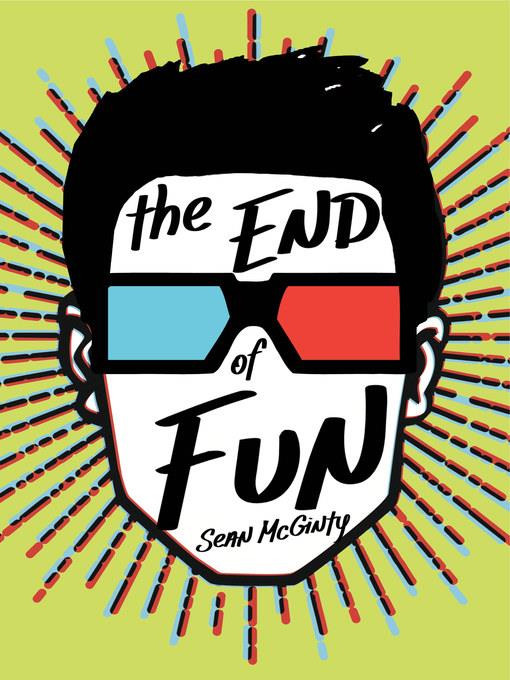
The End of FUN
کتاب های مرتبط
- اطلاعات
- نقد و بررسی
- دیدگاه کاربران
نقد و بررسی

January 15, 2016
A teen realizes there's more to life than augmented reality. In Aaron O'Faolain's near-future world, birds are dying en masse, American currency is being phased out in favor of digital-only funds, and everyone wants to have FUN(R). Aaron ditches his boarding school and uses his tuition money to pursue a life of adventure, complete with a microchip and lenses for the Fully Ubiquitous Neuralnet. Once he starts having FUN(R), it mediates all of his experiences in ways that are both (predictably) fun and (equally predictably) intrusive. Aaron's realization that it's tiresome to be asked to rate everything from consumer products to fellow humans coincides with his trip home to reckon with his grandfather's suicide. Having inherited everything, he decides to seek the treasure that might be buried on the property so he can pay back his father and sister. He also pursues fairly typical teen activities such as romance, imbibing questionable substances, scrapping with his responsible older sister, and helping an elderly neighbor. Aaron's account is littered with trademarked names, and each chapter ends with "yay!" and "boo!" rating buttons--just a few of the amusing details it feels that McGinty couldn't bear to cut; the result is a book that starts strong but has trouble maintaining its pitch. Aaron is white, but his world is convincingly diverse. McGinty's debut is a bit of a shaggy dog story: frequently meandering and patience-trying but bighearted and generous, too. (Adventure. 14-16)
COPYRIGHT(2016) Kirkus Reviews, ALL RIGHTS RESERVED.

February 1, 2016
Gr 9 Up-Seventeen-year-old Aaron has run away from home, is being wildly irresponsible, and does not want to have Fun(R) anymore. To opt out of Fun(R), he has to complete his application for termination and tell his History. Fun(R) is an augmented reality tool-special lenses are implanted in users' eyes, and they can mind-talk and play games with other people who also have Fun(R). The program can become expensive-if users don't play games or give Yays (think liking things on Facebook), they can lose credit and go into debt. As the book opens, Aaron is deep in debt and looking for a way out. McGinty gives just enough information to let readers discern the outlines of Aaron's world. The economy has crashed, there is an ongoing ecological crisis, and all the birds are dying. Although this is a troubling setting, McGinty is much more concerned with the themes of growing up, facing responsibilities, dealing with family ties, and enjoying the life in the present. The book feels long and repetitive at times, but it is mostly a quick read, and there is a sweetness to it that belies the main character's snarkiness. Aaron is impulsive and hopeful and fortunate in his family-they keep forgiving and loving him. The bits where Aaron interacts with Fun(R) are silly and will be familiar to anyone who has struggled with a computer program. VERDICT A solid additional purchase for larger collections.-Geri Diorio, Ridgefield Library, CT
Copyright 2016 School Library Journal, LLC Used with permission.

Starred review from February 15, 2016
Grades 9-12 *Starred Review* Aaron O'Faolain wants no more FUN in his life, but there's a catch. In order to get rid of FUNthe augmented reality chip he had implanted into his skull to directly stream social mediaAaron has to complete the ominous-sounding Application for Termination. That's no simple matter, and it's further complicated by the suicide of his grandfather, a mysterious search for hidden treasure, and a beautifully strange girl. As Aaron learns, there are resisters out there rebelling at the concept of the Big Brotherlike chip, and McGinty ably describes a system that appears to be free of charge but which costs dearly in terms of understanding what's important IRL. The not-too-distant-future setting and slightly dystopian bent provide plenty of fodder for social commentary on the overreach of technology, the complex business of doing business, and even bird flu. Reminiscent of M. T. Anderson's Feed (2002)with a touch of John Green's Paper Towns (2008)this is wildly funny, bittersweet, and wholly original. Moreover, it's perfectly pitched to a teen audience that has grown up being targeted by media in increasingly specific and sophisticated ways, is intimately familiar with virtual friends (and enemies), and knows firsthand what it's like to be addicted to a device.(Reprinted with permission of Booklist, copyright 2016, American Library Association.)

























دیدگاه کاربران